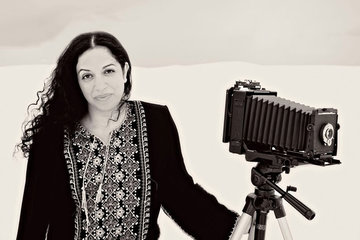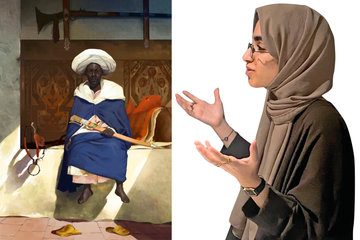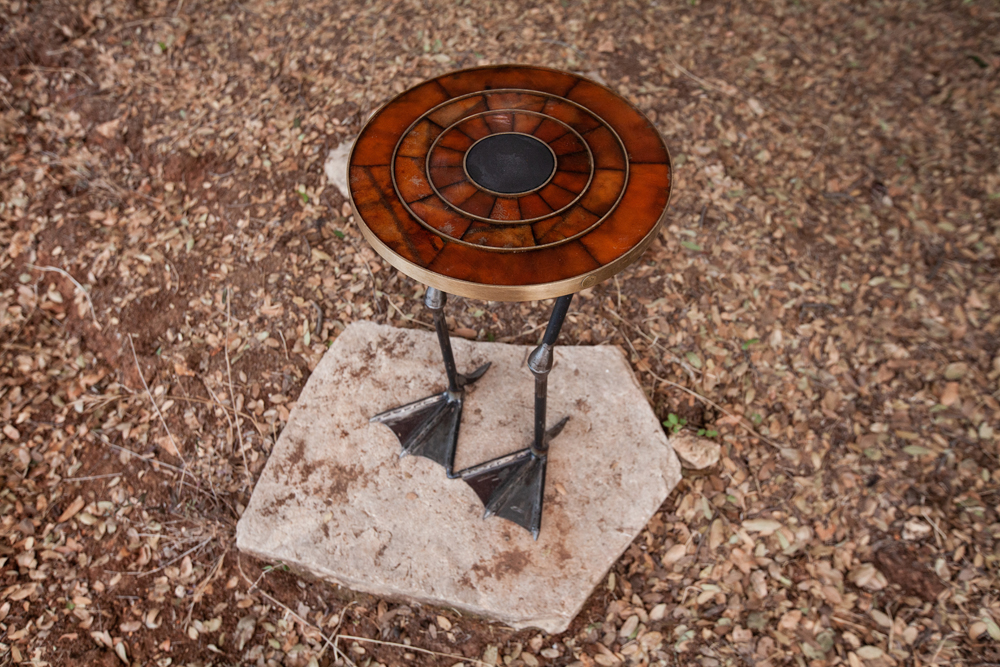
As COP26, a critical UN climate change summit, sees major pledges from world leaders, Omar Sartawi majestically shows how artists can do their own bit for global climate action. The internationally acclaimed Jordanian food artist and molecular gastronomist has created an installation that highlights the importance of sustainability in art and reducing food waste.
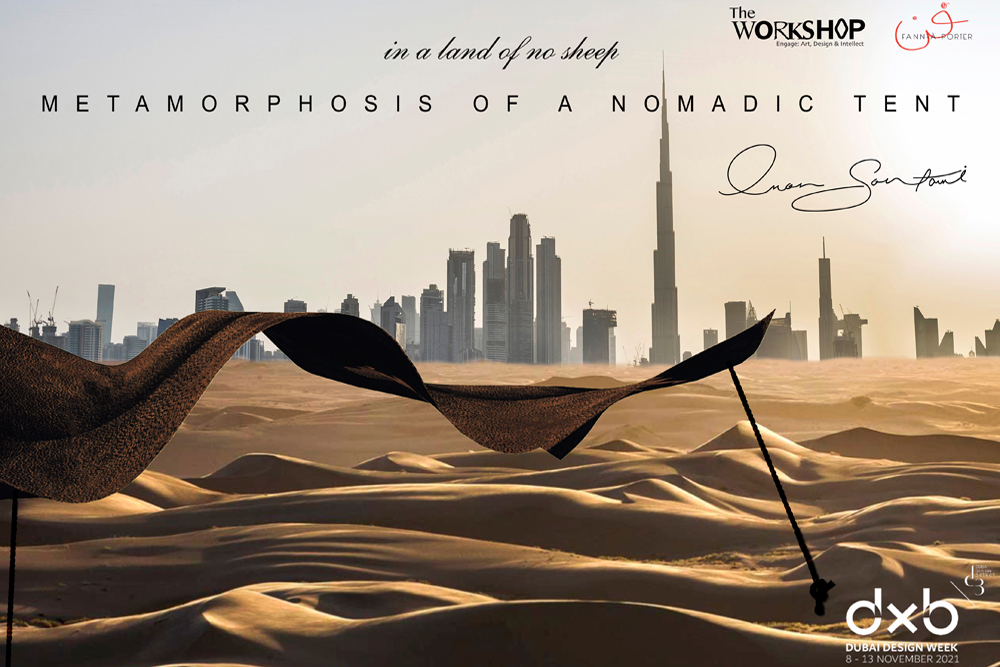
Sartawi has taken creativity to a whole new level with the avant-garde, interactive and sustainable installation named “In a land of no sheep: Metamorphosis of a Nomadic Tent.” The work paying homage to Arabian tents in a contemporary light was crafted using vegan leather made of aubergines. And environmentally conscious art lovers can get up close and personal with it during Sartawi’s first exhibition in Dubai, being presented by Fann A Porter and The Workshop Dubai until November 12.
Renowned for his conceptual interpretations and thought-provoking breakdown of texture, culture, science, time and methodical innovation that challenge our view of the world, Sartawi plays on the concepts of sustainability and luxury. He uses modern techniques inspired from ancient food preserving methods to create the aubergine leather, a new age vegan material.
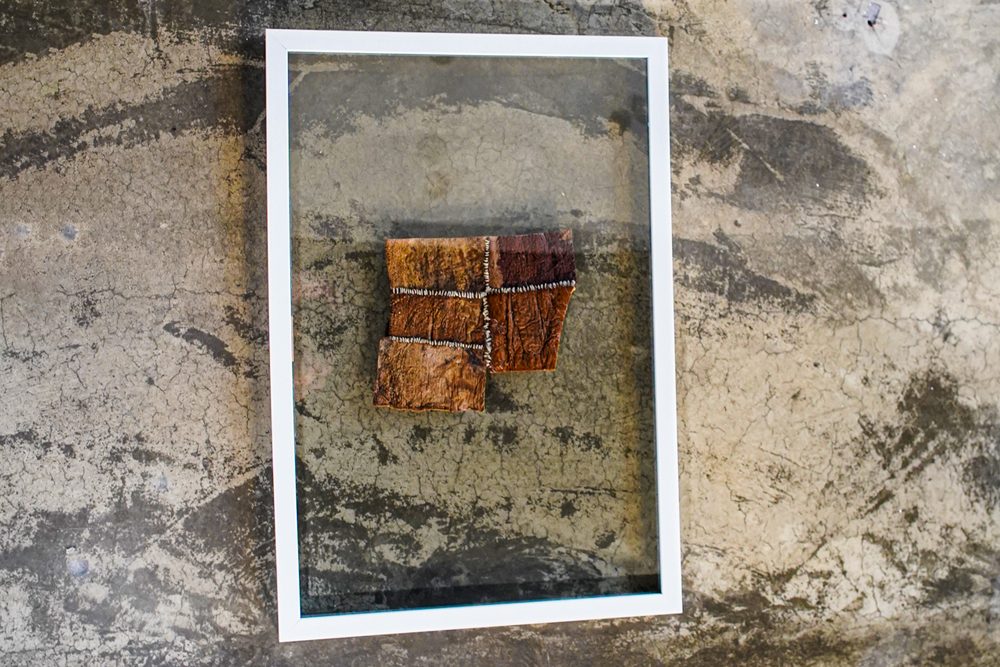
The aubergine leather was crafted using aubergine skin masterfully aged to produce a material that is rich in texture. This innovative technique produces different colours on the leather that are not always uniform yet come together to create a piece of natural and sustainable art. Additionally, Sartawi ensures there isn’t any waste as he ingeniously uses the aubergine pulp leftover from the creative process into an edible treat for visitors to taste.
The creative even thought beyond the exhibition and considered the environmental impact of the typical 2.4 x 1.2m tent, an example of what was used to provide shelter, warmth and an arena of hospitality, once it is over. It was designed to be biodegradable and as a food source for wildlife, perpetuating the food cycle and redefining the boundaries of sustainable art.
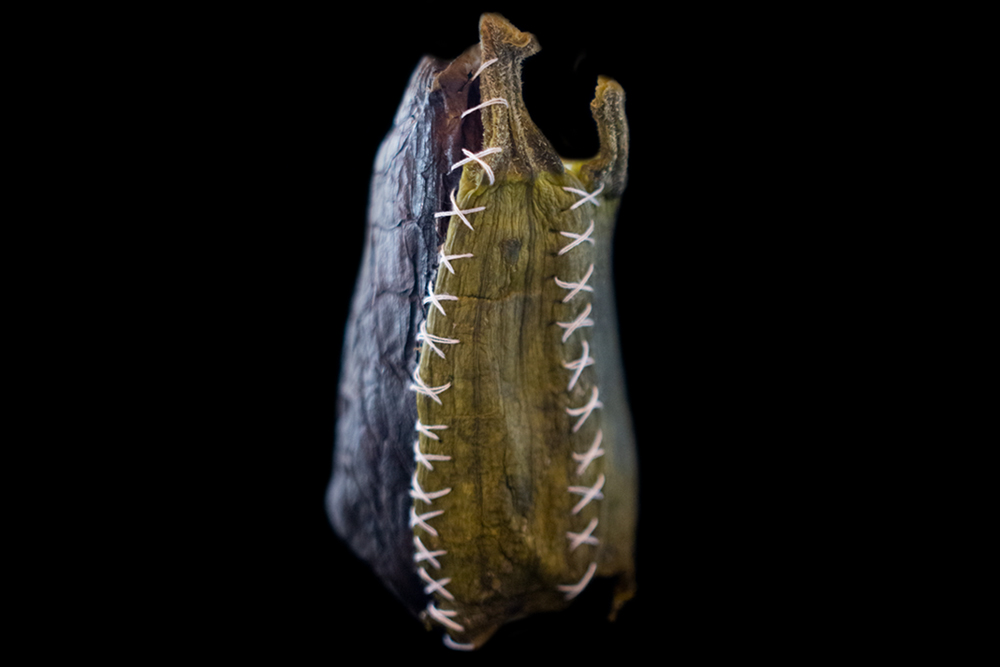
“Omar’s practice is thought provoking, unique and he shows great creativity in sustainability repurposing materials. It goes hand in hand with our vision of promoting sustainability through the re-use and up-cycling of vintage furniture,” Ghada Kunash, Founder of the The Workshop Dubai, said.
Alongside the installation, visitors can also view the “Duck a l’orange,” Sartawi’s limited edition collectible side tables made using orange leather, created in collaboration with architect and furniture designer Karim Sawalha.


